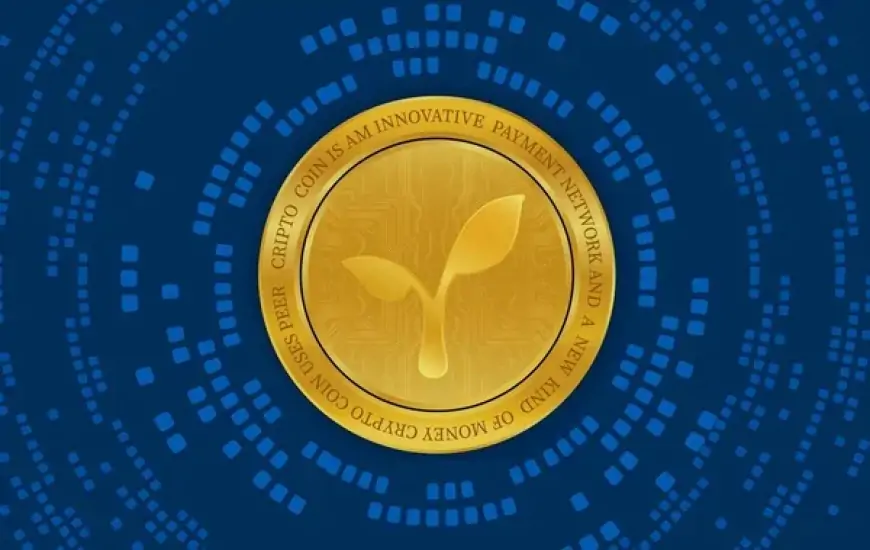What is Radicle? A deep dive into decentralized code collaboration
Discover what Radicle is and how it revolutionizes decentralized code collaboration and open-source development.

What is Radicle?
Radicle is a decentralized platform and network designed for software development management, allowing programmers to collaborate on projects in a peer-to-peer (P2P) manner. It serves as a fully open-source alternative to GitHub, emphasizing security, ease of use, and resistance to censorship. Radicle operates offline and does not rely on internet connectivity or Domain Name Services (DNS), ensuring accessibility even in isolated environments.
By leveraging open protocols instead of centralized platforms, Radicle empowers programmers to collaborate without intermediaries or third-party gatekeepers. Projects can be freely shared without the need for centralized code repositories, DNS hosting services, or proprietary collaboration tools. The Radicle ecosystem includes community-driven governance mechanisms governed in part by the RAD token, which adheres to the ERC-20 token standard.
Radicle: Advancements in code storage and communication technology
Initially built on the InterPlanetary File System (IPFS), Radicle later opted to replace it with Git due to performance concerns that IPFS couldn't meet. Git now serves as the primary storage and replication layer within the Radicle network, functioning essentially as a database. Secured by public-key cryptography (PKC), Radicle ensures robust security and maintains the integrity of code origins.
Facilitating collaboration, Radicle incorporates Radicle Link, a peer-to-peer (P2P) communication layer based on a Directed Acyclic Graph (DAG). This architecture, akin to blockchain technology, enhances speed and scalability compared to traditional client-server setups. Peers within Radicle can locally store and share data, making projects more accessible across the network as more users engage.
For users accustomed to Git-based platforms like GitHub, Radicle offers a P2P backup solution, enhancing security through decentralized redundancy and reducing reliance on centralized servers. Radicle Orgs, a blockchain-based tool, enables access control to code repositories via smart contracts, promoting transparent and permissioned sharing among global teams. Radicle provides desktop applications compatible with macOS and Linux operating systems (OSs) to facilitate seamless integration and user experience.
Integrating Ethereum: Radicle's cryptocurrency solution
While Radicle operates as a blockchain-free peer-to-peer (P2P) network, its optional Ethereum integration unlocks capabilities unique among GitHub alternatives. Through its Web3 application, Radicle Interface, users can connect using compatible crypto wallets, integrating their Ethereum address with their Radicle ID for project discovery on the platform.
This integration enables projects to anchor a transparent and auditable history directly on the Ethereum blockchain using Radicle Orgs. Using a multi-signature wallet governance mechanism, teams can collectively decentralize control over their codebase. Additionally, Radicle Org creators can opt to use a standard crypto wallet address with single signatory control.
Another integral Web3-integrated tool is the Radicle Registrar, facilitating discoverability of project profiles within both the Radicle network and the broader Ethereum ecosystem via Ethereum Name Service (ENS). Instead of DNS, the Radicle Registrar allows creation of human-readable ENS domains ending in ".radicle.eth", which can be linked to websites or decentralized social media handles once registered.
RAD Tokenomics
The RAD token is the economic backbone of the Radicle cryptocurrency ecosystem, designed to fuel its network functionalities and decentralize governance. RAD serves dual roles within the system:
- It acts as a governance token, enabling users to participate in on-chain governance processes to decide on platform changes, manage the Radicle Treasury, which holds over 50% of the total RAD supply.
- RAD token holders benefit from discounted or free access to Ethereum-based Radicle protocols. Users without RAD can still utilize these protocols but must pay standard market rate gas fees.
Decisions regarding the Radicle Treasury and other protocols are overseen by a decentralized autonomous organization (DAO), modeled after the Compound protocol's "one token-one vote" governance mechanism. Not initially part of the protocol, 100,000,000 RAD tokens were minted on May 5, 2021, with vesting periods ranging from one to four years based on allocation:
- 50% of RAD tokens are allocated to a community treasury.
- 19% is allocated to the team.
- 20% is reserved for early supporters.
- 11% is designated for the Radicle foundation, network promotion, and a proposed RAD-bootstrapping liquidity pool.
RAD token and the future of collaborative coding
Radicle is revolutionizing open-source software projects in a manner akin to how Bitcoin and cryptocurrencies have transformed online payments and finance. By eliminating intermediaries, decentralized projects enable users to freely share content online—whether code or crypto—without permission. Radicle has forged partnerships with numerous like-minded projects through its Seeders Program, such as Aave, Uniswap, Synthetix, The Graph, Gitcoin, and the Web3 Foundation. The Radicle crypto roadmap includes plans to introduce decentralized finance (DeFi) tools and support for non-fungible tokens (NFTs). With over a thousand Radicle coding projects completed, this RAD crypto platform has proven itself as a robust peer-to-peer code collaboration platform capable of integrating with blockchain-based protocols.












































